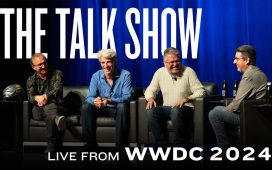Apple’s ambitions in the satellite sector face reported internal resistance from executives, with some questioning the long-term viability of the iPhone’s satellite service.
As reported by The Information this week, the tech giant’s satellite hopes have been a long been a challenge as the company sought not to compete with the telecoms companies that sell its iPhones.
Matters grew more complex when Apple rebuffed SpaceX’s Elon Musk, who made an offer in 2022 to provide satellite connectivity to iPhones via Starlink.
Ultimately, Apple rejected Musk’s proposal, which sought $5 billion upfront in exchange for SpaceX’s exclusive provision of satellite connectivity to iPhones for 18 months.
After that term, Musk proposed that Apple pay SpaceX $1 billion a year for Starlink services, the people said.
The Information reported that if terms weren’t agreed upon within 72 hours, then Musk threatened to develop a similar feature on his own that could work with iPhones.
In the end, Apple said no and Musk did what he said he would, forming a partnership with US carrier T-Mobile in August 2022 to provide mobile signal connectivity from space.
The timing of the partnership with T-Mobile was just two weeks before the launch of the iPhone 14. A key feature of that phone was its ability to send emergency SOS alerts outside the reach of cellular networks from remote locations.
At the time, the carrier noted that Starlink was an option for Samsung phones, not Apple. This was because of the latter’s partnership with Globalstar, which allows customers to send texts and contact emergency responders when there’s no cellular service available.
Apple even took a 20 percent ownership stake in satellite company Globalstar in an equity deal worth around $400 million in November 2024.
Prior to Apple’s satellite push with Globalstar, the tech giant, along with Boeing, held early discussions in 2015 about a satellite Internet project to deliver wireless Internet services.
The project, called Project Eagle within Apple, would have seen Apple use thousands of Boeing satellites in orbit to connect iPhone users.
A year later, CEO Tim Cook canned the project, partially over fears of competing with telecoms companies, and partially over concerns Apple would be regulated as a telco.
Tensions with SpaceX
Apple’s decision to reject Musk’s offer led to increased tensions between the two companies, noted the report.
It led to multiple SpaceX challenges over spectrum rights licensed to Globalstar in filings to the Federal Communications Commission (FCC).
In one such filing, SpaceX objected to Globalstar’s application to launch new satellites and accused the satellite company of barely using the spectrum it already controlled.
“This shell game serves one purpose: to block competitive entry in frequencies Globalstar has never meaningfully used,” SpaceX’s vice president of satellite policy, David Goldman, wrote in 2023. He accused Apple of hogging spectrum.
SpaceX and Apple have clashed more recently over the latter’s support for SpaceX’s partnership with T-Mobile.
The Information reports that Apple’s reluctance to support the T-Mobile satellite feature in models older than the iPhone 14 has irked Musk, who has suggested in the past that Tesla could begin making cell phones to rival Apple and directly offer its Starlink services.
Currently, SpaceX’s offering to T-Mobile customers is available in a beta version, offering customers text messaging services. The full service is expected to go live this year.
Earlier this year, Apple quietly enabled support for Starlink services via its iOS 18.3 update.
Internal questions
The filings from SpaceX against GlobalStar and Apple have reportedly irritated executives at the Cupertino giant.
But, internally, the future of Apple’s satellite ambitions are also being questioned.
Some former employees told The Information that Globalstar’s network is already outdated, slow, and limited in the features it can support, while there are concerns that Globalstar’s upcoming satellites won’t significantly upgrade that network.
Other former employees who have worked on Apple’s satellite network estimate that the company is spending hundreds of millions of dollars annually on the service.
The Information also notes that Apple fears that SpaceX may receive favoritism from the FCC and the current US Administration, given Musk’s ties to President Trump.
As of yet, Apple has not charged users for its satellite features, although it’s reported that this is due to concerns that the US government could regulate Apple as a telecommunications carrier if it were to charge for the service.







